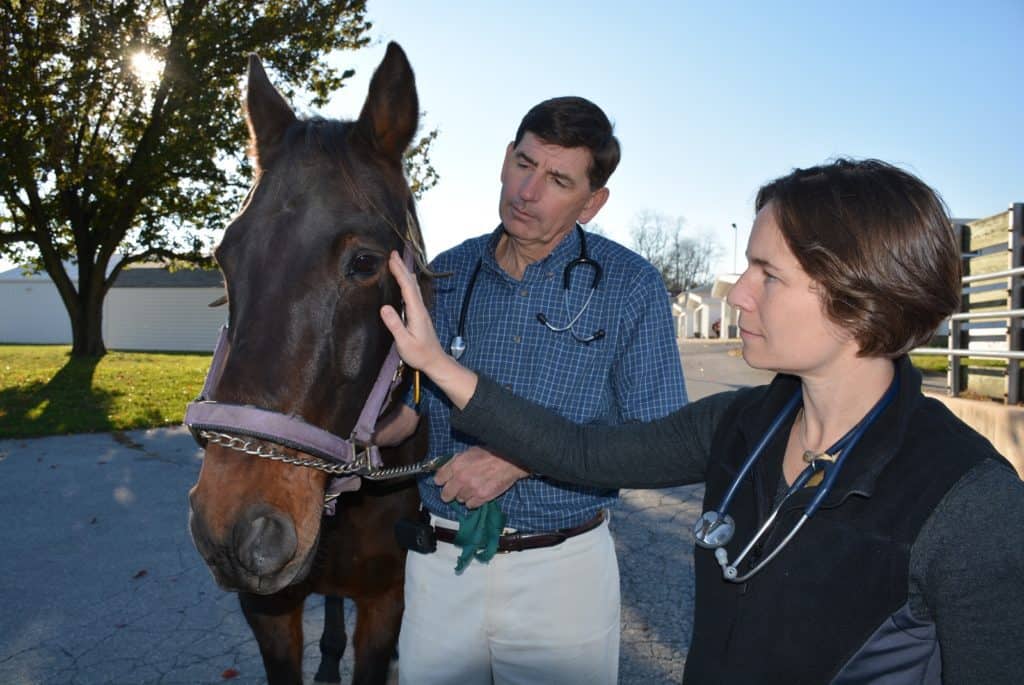
EHV-1 Confirmed in Two Texas Horses
The El Paso County horses are now two of 74 linked to an equine herpesvirus outbreak at Sunland Park in New Mexico.

The El Paso County horses are now two of 74 linked to an equine herpesvirus outbreak at Sunland Park in New Mexico.
The Arizona Department of Agriculture lifted its quarantine of Turf Paradise Racetrack, in Phoenix, on Feb. 18, 2016.

Researchers are hoping to make the preferred embryo freezing procedure available to more breeders.

The aged Quarter Horse mare tested positive last week and remains under quarantine.

Meanwhile, two local training centers–Jovi and Lazy S–have been released from quarantine.

Placentitis can wreak havoc for mare owners, so it’s important for vets to have a good understanding of the condition.

The affected filly is receiving veterinary care and is expected to make a full recovery.

Three horses were released from the isolation barn on Feb. 9 and eight exposed barns have returned to nonexposed status.

A 14-year-old polo pony from Riverside County that was euthanized after developing neurologic signs tested positive.

A neurology specialist reviews the confusing landscape of laboratory diagnostics for neurologic disease in live horses.

The fungus that lives inside infected tall fescue can have negative effects on broodmares and their foals. Download this free fact sheet to learn more.

Most affected horses are from 19 barns at Sunland Park. Two EHV-1-positive horses are at a nearby training center.

The affected horse has been euthanized due to progressive neurologic disease.
The FDA has approved Quest Plus (moxidectin/praziquantel) for use in breeding, pregnant, and lactating mares.

New Mexico’s acting state veterinarian Alexandra Eckhoff, DVM, offered tips to horsemen at two Feb. 1 meetings.

A recap of studies on topics ranging from prostaglandin treatment of mares to semen quality in stallions.
Stay on top of the most recent Horse Health news with
"*" indicates required fields